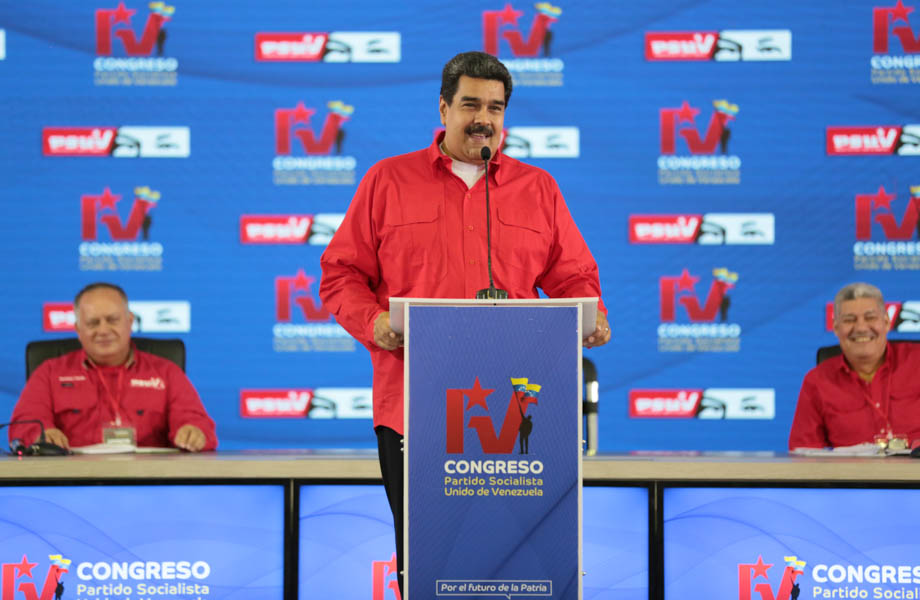
Nicolas Maduro recognizes responsibility for Venezuela's economic crisis
Venezuela's president recognized on Monday his "responsibility" for the economic crisis in the country and said that he needs two years to achieve an economic recovery with a "high level of stability."
"The productive models that we have tried so far have failed, and the responsibility is ours. It is mine," Nicolas Maduro said in a working session of the IV Congress of the ruling United Socialist Party of Venezuela.
Despite its enormous resources, Venezuela is going through a severe economic crisis that has descended into a nationwide shortage of basic foods and medicines as well as deficient public services.
The country is also facing hyperinflation that the International Monetary Fund (IMF) estimates will reach 1 million percent in 2018.
The Venezuelan government frequently blames the bad performance of its economy on a war led by the United States together with internal and regional opposition.
Maduro on Monday asked his ministers to change their attitude.
"The imperialism assaults us? Enough of whining (...). You will not see me whining to myself. I do not blame them anymore. You do not see me whining in front of imperialism. Let them attacks us. It is up to us whether to act with aggression or without aggression," he added.
To tackle the crisis, Maduro announced last week a series of measures that include cutting five zeros off the Bolivar banknotes, revising the law regulating exchange activities, taking records of the vehicle fleet in the country to promote a "rational use" of gasoline, as well as levying more taxes on the import of capital goods.
The president said Monday that there are many things that he needs to further manage in this recovery program, which he expects will show "the first symptoms of new prosperity" in two years.
CONTENIDO RELACIONADO
Maduro then asked the party for support in spreading the information among communities.
Analysts consulted by EFE said last week that Maduro's recovery plan is "insufficient" as it does not include international financial aid.
Maduro insisted on Monday that "Venezuela has everything to be a middle power in the Latin American context" and confirmed that his government has the goal of raising oil production, the main engine of Venezuela's economy, to 6 million barrels per day.
Maduro said that stopping the economy's dependency on oil exports does not mean that his government would not develop the oil industry at the highest level.
According to the latest report from the Organization of the Petroleum Exporting Countries, which was written based on secondary sources, Venezuela produces only 1.39 million barrels per day.
The Venezuelan government said in mid-July that its average production during the first half of 2018 was 1.57 million barrels per day and that it had managed to "stop the decline" in oil pumping.










DEJE UN COMENTARIO:
¡Únete a la discusión! Deja un comentario.